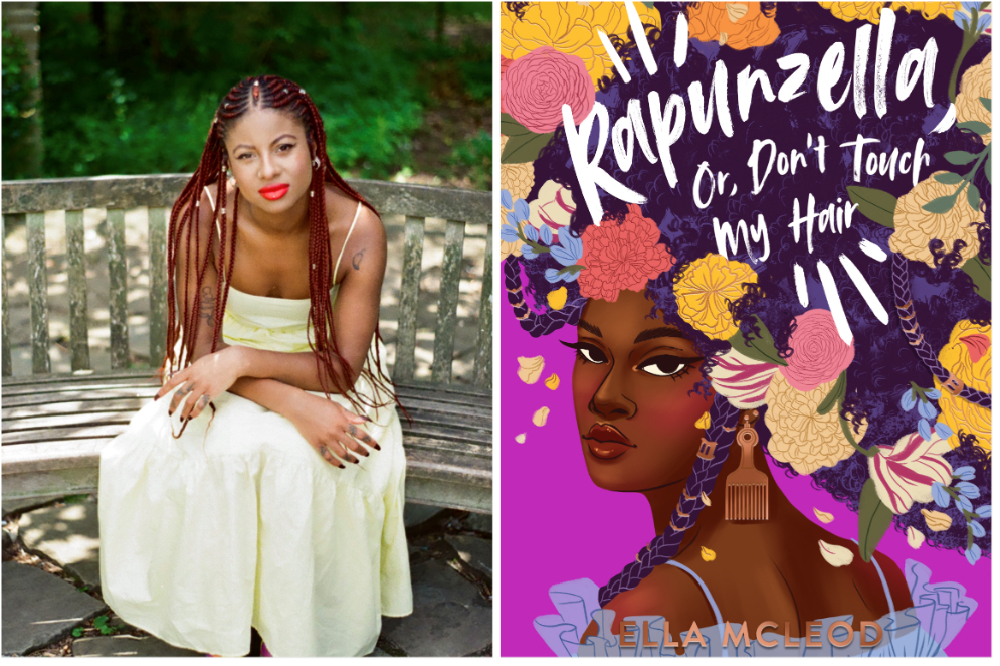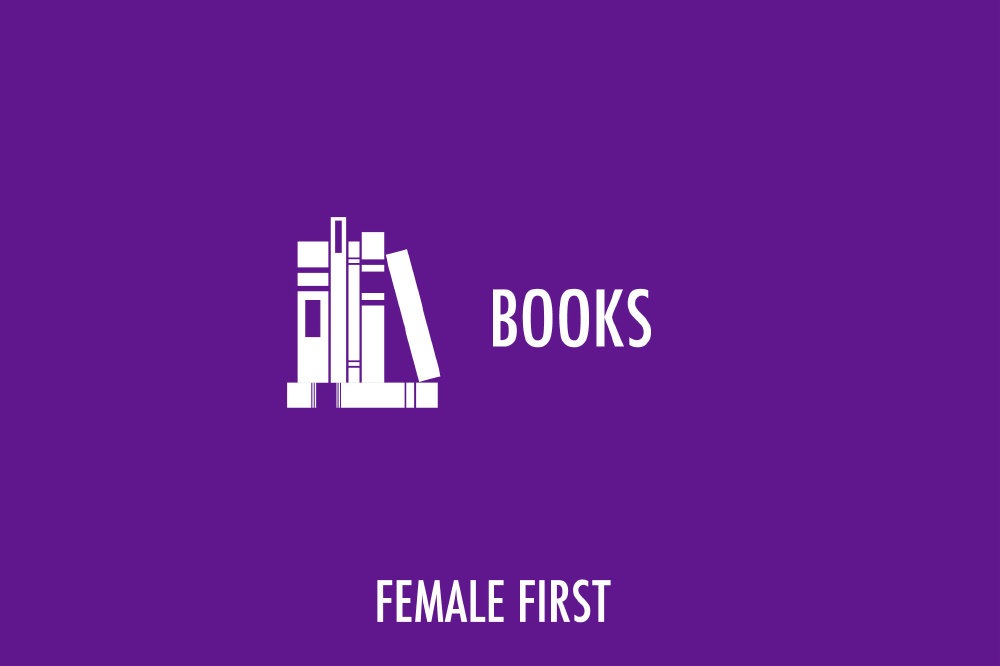First things first, before I dive into the nitty gritty of combining the genre we all love to hate with the modern world- which we also all love to hate- I’ll say this; I write from rage. I write to right wrongs. I write for the part of myself that feels things too acutely to speak aloud. Not everyone writes from the same place, has the same creative impulse or drive. This is ok. Your voice is important. My voice is important. We are most powerful when we use our voice. (Yes, I just quoted myself, sue me. Oh wait, you can’t, they’re my words. Point proven.)

Ella McLeod (Saffron McLeod), Rapunzella
1. I felt as personally victimised by fairy tales as North Shore High did by Regina George. Regina George is actually an apt metaphor for the role that the fairy tale plays in our culture. She upholds capitalist, patriarchal ideals, she presents a narrow standard of beauty, she enforces conformity and ostracizes anyone or anything that defies her. She is the ultimate evil Queen. When writing Rapunzella, Or, Don’t Touch My Hair, I wanted to bring everyone into the sports hall and fall into a crowd of female support. I wanted to undo all of the harm Regina- or the Grimm Brothers, Hans Christian Anderson, Charles Perrault, Disney- is responsible for. That was my reason. What’s yours?
2. Next you have to figure out which fairy tale really grinds your gears. Perhaps the tale of tiny footed Cinderella particularly peeves you (as a 5’4, shoe size 7 woman, I understand), or you feel a sense of injustice that the poor creative witch- an olden day Mary Berry- was so wronged by the thieving, greedy Hansel and Gretel. For me, it was Rapunzel. The story of a golden haired damsel in distress really set the tone for my life as a young black woman in Britain. My hair was too dark, too coarse, too curly. It lifted up and out, as a storm cloud on the horizon, it didn’t hang in shining, sunlight coloured tresses. It bothered me before I could even articulate why. After 23 years of being a book worm, 13 years of being an anti-racist feminist and 3 years of an English degree, I wrote a story where pale blonde men quake at the clap of thunder, and the dark cloud of an afro is a thing of majesty and beauty.
3. What about fairy tales still appeals? What doesn’t? Romance- yes. Yearning- of course. Enormous, sparkly dresses, magic, daring rescues, impressive battle scenes, people coming together to defy all odds. YAS. But outdated, elitist notions of royalty? Nah. Misogynistic portrayals of witches and other powerful women? I’d rather not. Non consensual kisses forced upon comatose women? Drop me out.
4. When leaving the fairy tale for the contemporary it’s important to establish how the reader is to traverse the two? How are we getting back and forth? Because the journey is just as important as the destination. This is a question any writer who builds worlds between worlds is faced with. Lyra and Will (His Dark Materials, Phillip Pullman) cut holes into the fabric of existence and in doing so, call into question the very nature of existence. Tavia and Effie (A Song Below Water, Bethany C Morrow) have instagram, follow youtubers and just so happen to exist alongside sirens, sprites and eloko. I’ve never been to Portland but Morrow’s magic realist Oregon paints a clear picture of a place with a veneer of magic, freedom and liberalism that exists alongside an underbelly of fascism clawing at the surface. And in my world, a dream isn’t just a dream. It’s a space for radical reimagining, a real unreal where anything is possible.
5. Lastly, in blending two separate worlds, what about them is, perhaps, not so separate? In fairy tales powerful women are witches (and this is a pejorative), royalty is revered and the voice of the people is frequently drowned out by those with money and status. When you put it like that, it doesn’t really sound like I’m talking about fairy tales any more. In establishing the overlaps in my ire, I found that what I wanted, in blending fairy tale and contemporary fiction, was something truly subversive; a story where a witch isn’t set up as a “bad woman” (someone old, who doesn’t conform to the beauty standard and dares to be more powerful than men), where wealth and social status aren’t necessarily good things, and where love- all types of love, not just heteronormative, romantic love- wins.
Write your wrongs. Find the points of ire in our material world, find the points of mundanity in their magical one. Connect the dots. Raise your voice. The story will follow.


